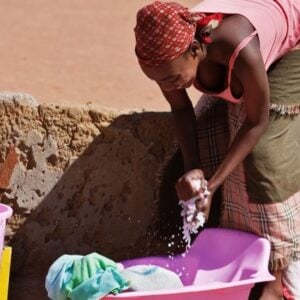The United Nations Food and Agriculture Organization (FAO) is intensifying efforts to attract global investment into Southern Africa’s rapidly evolving agricultural sector. Highlighting a pipeline of over USD 1.8 billion in the Southern African Development Community (SADC) and more than USD 448 million in African Small Island Developing States (SIDS), FAO is promoting high-impact investment opportunities aimed at strengthening food security, resilience, and inclusive development.
Ahead of the Hand-in-Hand Investment Forum 2025, FAO is urging institutional and private investors to engage in transformational agrifood projects. The regional forum will be held in Harare, Zimbabwe, from 10–12 September, followed by the global forum in Rome from 14–17 October. FAO and its partners have already secured significant early-stage commitments, providing a strong foundation for investment in climate-smart irrigation, mechanization, agro-processing, and cross-border trade integration.
SADC countries, with a combined population of 363 million and an average poverty rate of 43 percent, possess substantial agricultural assets, with agriculture contributing an estimated 33 percent to regional GDP. FAO’s latest estimates indicate that the regional investment portfolio could deliver an average internal rate of return (IRR) of 19.92 percent, directly benefiting 6.6 million people and indirectly impacting over 35 million. One notable project—a regional agro-processing hub—requires USD 332 million in investment and offers an IRR of 16.7 percent, demonstrating strong economic potential in Africa’s growing market for processed and value-added food products.
Investment projects are supported by government incentives and enabling environments to de-risk participation. Across the region, countries such as Zambia, Zimbabwe, Malawi, Mozambique, Namibia, Botswana, Eswatini, Lesotho, Angola, South Africa, and others have introduced measures including tax breaks, VAT exemptions, Special Economic Zones, renewable energy incentives, land rights, and agri-park support. These initiatives are nationally prioritized, regionally coordinated, and designed for commercial scale, providing bankable investment cases supported by data and policy tools.
To further strengthen the investment climate, SADC is implementing de-risking measures, smart subsidies, participatory water governance, and climate-smart irrigation practices, alongside capacity-building for efficient water management. The FAO Hand-in-Hand platform enables investors to access over 2 million geospatial data layers, facilitating precision-targeted investments and attracting ministers, regional banks, agritech innovators, and global development financiers to upcoming forums.
As climate risks increase and food insecurity deepens, FAO positions the SADC region and African SIDS as central to developing resilient, inclusive agrifood systems that can support long-term economic growth, sustainable development, and regional integration.







